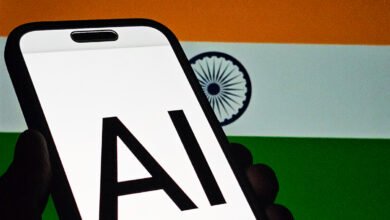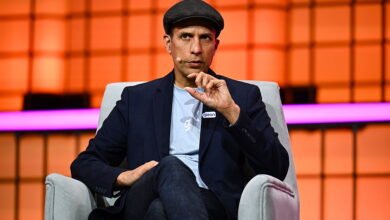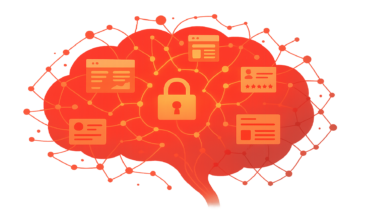Sam Altman Discusses Life Beyond GPT-5 Over Dinner

▼ Summary
– OpenAI CEO Sam Altman jokes about preserving the design of their upcoming AI device, warning against using phone cases, during a dinner with tech reporters.
– GPT-5’s launch was underwhelming compared to GPT-4, performing similarly to rivals like Google and Anthropic, prompting OpenAI to reintroduce GPT-4o due to user feedback.
– OpenAI is shifting focus beyond AI models, exploring consumer apps, an AI-powered browser, social media, and investing in brain-computer interface startup Merge Labs.
– Altman acknowledges missteps with GPT-5’s rollout, promising clearer transitions for future model updates and adjusting GPT-5’s tone to be warmer without reinforcing negative behaviors.
– Despite GPT-5’s mixed reception, OpenAI’s API traffic doubled post-launch, and the company is expanding into broader ventures like data centers and robotics, aiming to outgrow its ChatGPT identity.
The future of artificial intelligence extends far beyond the latest chatbot updates, as OpenAI CEO Sam Altman made clear during an exclusive dinner with tech journalists in San Francisco. While the conversation touched on recent developments like GPT-5, the real focus centered on the company’s ambitious plans to reshape industries ranging from social media to neural interfaces.
Sitting at a high-end restaurant overlooking Alcatraz, Altman casually joked about his unprotected iPhone while hinting at upcoming hardware collaborations with Apple’s former design chief Jony Ive. “If you put a case on our new device, I’ll personally hunt you down,” he quipped, emphasizing OpenAI’s commitment to sleek, functional design. The playful remark underscored a broader shift, OpenAI is no longer just an AI research lab but a multifaceted tech giant in the making.
Though GPT-5 dominated headlines recently, executives downplayed its significance compared to earlier breakthroughs. Unlike GPT-4, which stunned the industry with its capabilities, the latest iteration faced mixed reviews for its clinical tone and underwhelming differentiation from competitors like Google’s Gemini. OpenAI quickly rolled back some changes, reintroducing GPT-4o after user feedback, but the dinner made one thing clear: model releases are becoming just one piece of a much larger puzzle.
Newly appointed applications CEO Fidji Simo will spearhead multiple consumer-facing projects, including a potential AI-powered browser to rival Chrome. Altman even floated the idea of acquiring Chrome outright if the opportunity arose, though he admitted skepticism about its availability. Beyond browsing, OpenAI is exploring social media, an area Altman believes is ripe for reinvention. “Current AI integrations feel uninspired,” he said, hinting at a vision for more dynamic, engaging platforms.
Perhaps the most surprising revelation was OpenAI’s interest in brain-computer interfaces. Altman confirmed discussions around backing Merge Labs, a Neuralink competitor, though he stressed the deal wasn’t finalized. The move signals OpenAI’s willingness to venture into hardware, blending AI with human cognition in ways that could redefine interaction paradigms.
Despite GPT-5’s rocky debut, Altman revealed that API usage surged post-launch, straining the company’s GPU supply. User preferences varied widely, some appreciated its no-nonsense responses, while others missed ChatGPT’s empathetic tone. OpenAI is now fine-tuning the model to strike a balance, collaborating with mental health experts to ensure responsible engagement.
The evening’s biggest takeaway? OpenAI is rapidly evolving into something far beyond a chatbot company. With ventures spanning browsers, social apps, neural tech, and more, Altman’s ambitions mirror those of tech conglomerates like Alphabet, only with AI at the core. As dessert arrived off the record, one thing was certain: OpenAI’s next chapter won’t be written by GPT-5 alone.
(Source: TechCrunch)





